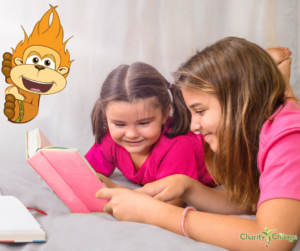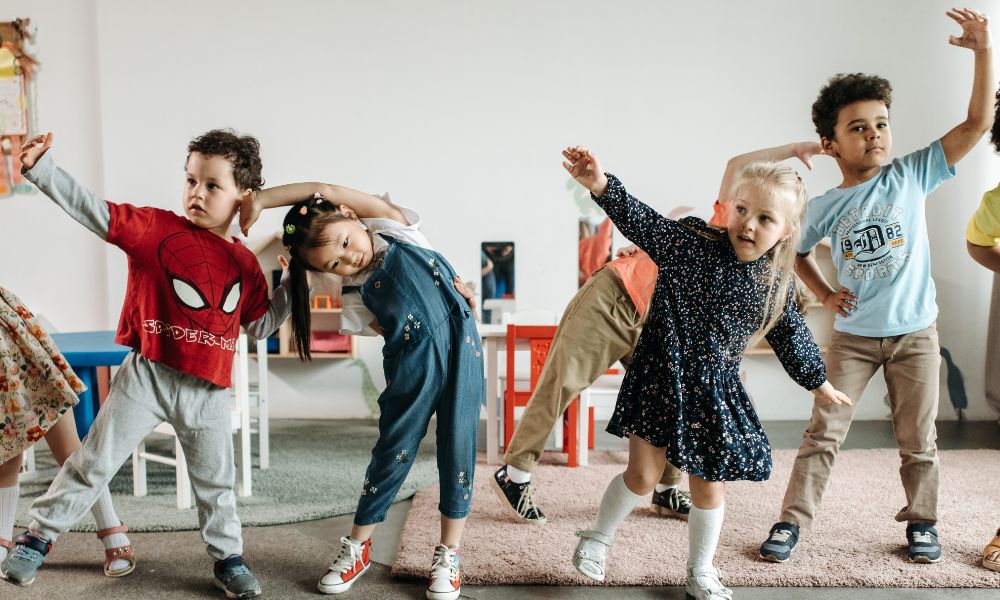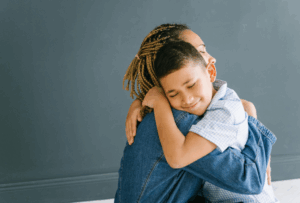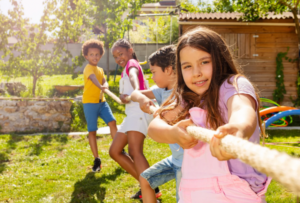Teaching children self-control is one of the most impactful lessons an educator imparts. The ability to manage one’s emotions, behaviors, and impulses is crucial for children as they navigate school, relationships, and life in general. Self-control is a skill that can be developed even in elementary school-aged students. Below you will find practical strategies to help children develop self-control as well as real-life examples from students participating in the Charity for Change Program, a curriculum that integrates character education and academics.
Research on the Importance of Self-Control for Children
Educators know the significant role self-control plays in a child’s well-being! School settings are particularly good for developing self-control because children must follow the rules, wait their turn, and manage their impulses for a classroom to function well.
However, self-control in childhood can also be a predictor of adult well-being. A 40-year study of 1,000 children revealed that “childhood self-control strongly predicts adult success in people of high or low intelligence, and in rich or poor” (Moffitt, 2011). When re-evaluated at age 38, study participants with greater self-control in childhood had better adult outcomes in health, education, and income. They also had lower incidences of substance abuse and incarceration.
Another study first evaluated children’s self-control by their ability to delay gratification. Children who demonstrated better self-control were more likely to have higher academic performance and stronger social competencies later in life (Mischel, 1989).
Strategies to Help Children Develop Self-Control
Narrate the Process of Self-Control
Children learn so much by observing the adults around them. When educators model calmness and appropriate responses to challenging situations, they show students how to handle their own emotions. Specifically, teachers can narrate their thought processes during difficult moments or narrate their inner experience of self-control, helping students understand how to pause and think before reacting.
Other ways to teach self-control are by explaining how a student can show self-control or even have the students think of a time they demonstrated self-control themselves. For example, a student in the Charity for Change Program shared how he showed self-control by being patient. The kindergartener explained, “I showed self-control by waiting in line with my family at the fair. Eventually, we were able to get on the ride.” This is a great illustration of how children can manage their impatience in real-life challenges!

Mindfulness Exercises
Introduce students to simple mindfulness exercises–such as deep breathing or counting to ten—that they can use to calm down and regain control. The Charity for Change Program regularly incorporates mindfulness, particularly to prepare students for learning.
Set Clear Expectations and Consequences
Clear expectations about behavior and consistent consequences are key to helping children develop self-control. Establish classroom routines that promote patience, such as deliberately waiting for several seconds before calling on a student to answer a question. This gives all students, especially those who need more time to process, a chance to think before answering. Routines requiring self-control provide students with regular opportunities to practice the character trait. Offer students praise or small rewards (such as a sticker) to reinforce these behaviors and encourage them to continue practicing self-control.
Encourage Problem-Solving and Making Good Choices
When conflicts arise in the classroom, rather than stepping in to resolve the issue immediately, encourage students to take a second and think about the best plan of action. Guiding children through the process of thinking critically about a problem and its possible outcomes teaches self-control as opposed to acting on impulse. Problem-solving and making good choices like this allows students to take ownership of their actions.
An example from our program comes from a kindergarten student who said, “Today I can show self-control by making sure that I eat healthy food instead of chips and candy.” This young student’s intention reflects the ability to make good decisions, an important aspect of self-regulation. Have your students share the good decisions they’re encouraged to make on a daily basis and connect it to self-control.
Another Charity for Change student demonstrated good decision-making when she chose to read to her niece instead of watching television. She explained, “I showed self-control when I read with my niece instead of watching TV.” This small but meaningful choice reflects the power of self-discipline!

Games and Activities
Games that require children to stop, think, and wait are practical tools for building self-control. Games such as “Simon Says” or “Red Light, Green Light” are fun and interactive ways to practice listening, following instructions, and controlling their impulses. Games make self-control a fun activity that reinforces the trait in a low-stress environment.
You can help your students develop self-control through the fun strategies like those listed above. Developing self-control is an incredible gift you can give your students. Children with well-developed self-control are more resilient in the face of challenges, more capable of managing stress, and better equipped for the complexities of adolescence. Educators who make an effort to teach self-control, set their students up to thrive in school and life!
Want to learn more about the Charity for Change Program?
Charity for Change is an engaging curriculum that integrates character education, service learning, math and language arts.
An entire month each year is dedicated to the development of self-control through different daily activities, which include:
- PROJECT-BASED LEARNING
- MINDFULNESS EXERCISES
- PEER-TO-PEER REFLECTION
- MATH
- KINESTHETIC
- PUZZLES AND READER’S THEATER
Request More Information about the Charity for Change Program.
References
Mischel, W., Shoda, Y., & Rodriguez, M. L. (1989). Delay of gratification in children. Science. https://doi.org/10.1126/science.2658056
Moffitt, T. E., Poulton, R., & Caspi, A. (2011). Lifelong Impact of Early Self-control. American Scientist. https://www.americanscientist.org/article/lifelong-impact-of-early-self-control

Karen Conley
Founder, President, and CEO of Charity for Change





